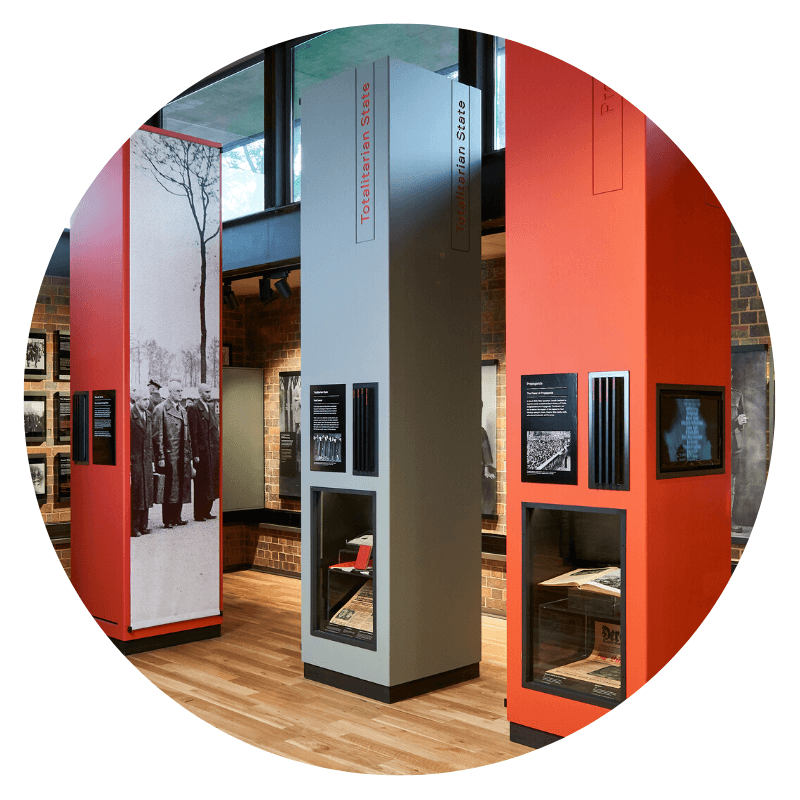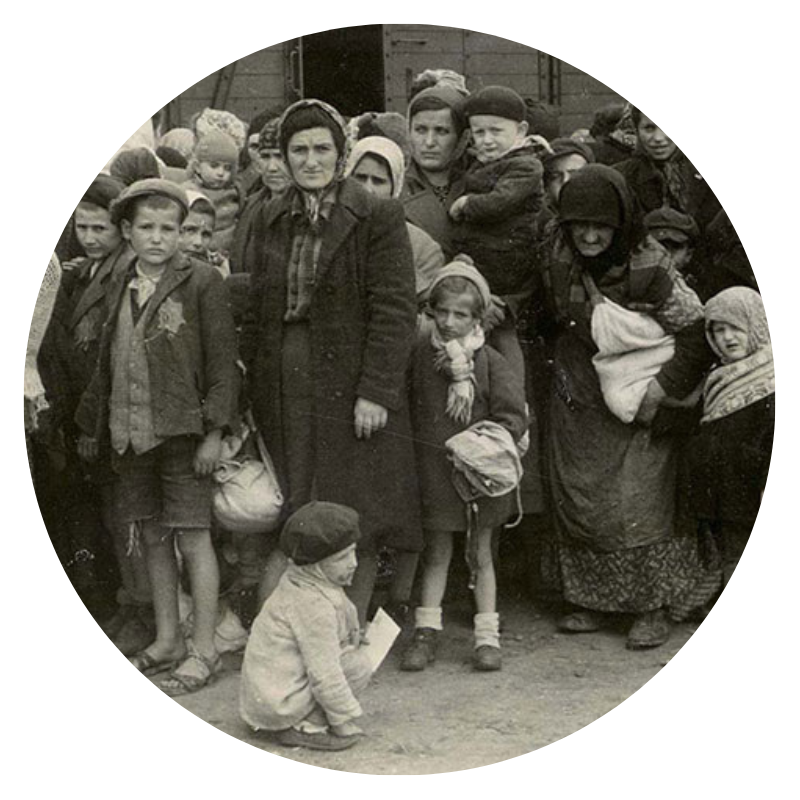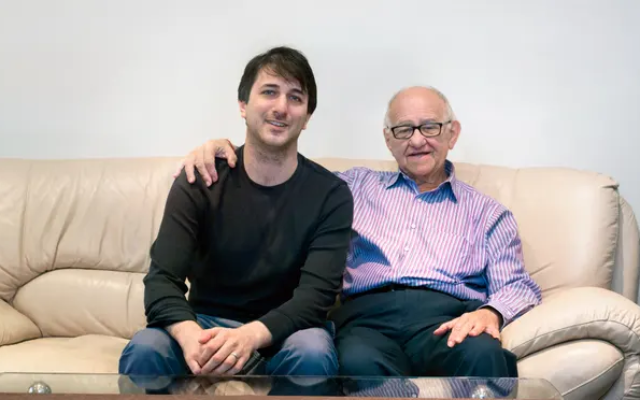OPINION: Zigi’s legacy: the role of future generations after the last survivor has gone
In the first in a three-part series about what he learnt from his legendary grandfather Zigi Shipper, his grandson visits the 'Seeing Auschwitz' exhibition in London - and tells the Jewish News that those who were murdered must be remembered as real people, not numbers.
Much-loved Holocaust survivor Zigi Shipper, lived through Auschwitz-Birkenau and Stutthof and died on his 93rd birthday on January 18th this year. His grandson, journalist Darren Richman tells Jewish News that his indefatigable grandfather would want a legacy of Jews and Gentiles alike, remembering Shoah victims as real people with real lives rather than an anonymous mass of six million.
My grandfather, Zigi Shipper, survived Auschwitz and died on his 93rd birthday in the middle of January. Due to the nature of the man and his extraordinary impact on society, the funeral and shiva were not the typical scrabbling around for a minyan one might expect for a man whose contemporaries had, for the most part, predeceased him. The air of a state funeral was only increased by letters of condolence from King Charles III and the Princess of Wales, the latter perhaps the most high-profile figure to enjoy Zigi’s infamous penchant for flirting.

Shivas, like test matches in days of old, have rest days. The Lord and Lord’s took a day off and thus we were allowed a hiatus from pressing the flesh and sharing stories. I have always preferred a kind of immersion therapy approach to difficult times (the lockdown era saw me consume an unhealthy amount of post-apocalyptic fiction) and decided that Friday would be the ideal time to attend the Seeing Auschwitz exhibition in London.
I invited a friend and he told me he would treat himself by not going before my wife intervened and suggested I let myself off the hook too and go to the cinema (presumably to see something other than Schindler’s List). My wife is not Jewish and noticeably more clear-headed than I am; these two facts may or may not be related but, either way, I acquiesced.
‘Seeing Auschwitz’ is currently on display in Johannesburg but I ultimately managed to catch it during its final week in London. On arrival, I was immediately heartened by the sheer number of gentiles in attendance, especially considering I was only married to one of them. Zigi almost never shared his testimony at Jewish schools, arguing that most Jews grow up with at least some awareness of the Holocaust and it was, inevitably, his voice in my head, as I made my way through the space.

It was evident from the outset that the presentation of the material had been carefully considered. There were no images of emaciated bodies, the kind of photographs that, like the words “six million”, are in danger of making us de-sensitised through overuse. Instead, we were presented with images captured by victims and perpetrators alike that captured everyday life at the hell on earth endured by my grandfather in the middle of the last century.
Every room brought fresh reminders of Zigi’s words. There was a tableau of the Nazi high command enjoying a weekend away that caused me to recall my grandfather’s most rhetorical of questions, “How can somebody do those things by day then listen to music with his family at night?” There was the video footage of a survivor, decades on, explaining that he invariably breaks down in tears if he hears a kid crying in a shopping mall. Zigi couldn’t abide a child in distress on the news or in his own life; if a grandchild was so much as off school with a cold it was hidden from him.

Placed next to the pictures of the Nazis at the holiday retreat were a series of photographs confiscated from prisoners on arrival depicting their lives before the war.
A young woman who wouldn’t have looked out of place in a Noah Buambach film posed in front of the mirror, a mother hugged her newborn baby in hospital for the first time, a family enjoyed a day at the seaside. The Nazis exhibited a few feet away had tried to dehumanise the victims entirely but these pictures were concrete proof that these people were not simply numbers. It was more affecting than any number of images of corpses.
The final piece of audio footage was the voice of a woman. She was clearly late in life and spoke with none of the neutrality I have come to expect from survivors recounting the horrors they endured. Through tears, she explained her fears that this would all be forgotten once the survivors had died out and implored us to do what we could to ensure people remember. For that voice and my grandfather’s and the millions that were silenced, that is what I am trying to do.

Thank you for helping to make Jewish News the leading source of news and opinion for the UK Jewish community. Today we're asking for your invaluable help to continue putting our community first in everything we do.
For as little as £5 a month you can help sustain the vital work we do in celebrating and standing up for Jewish life in Britain.
Jewish News holds our community together and keeps us connected. Like a synagogue, it’s where people turn to feel part of something bigger. It also proudly shows the rest of Britain the vibrancy and rich culture of modern Jewish life.
You can make a quick and easy one-off or monthly contribution of £5, £10, £20 or any other sum you’re comfortable with.
100% of your donation will help us continue celebrating our community, in all its dynamic diversity...
Engaging
Being a community platform means so much more than producing a newspaper and website. One of our proudest roles is media partnering with our invaluable charities to amplify the outstanding work they do to help us all.
Celebrating
There’s no shortage of oys in the world but Jewish News takes every opportunity to celebrate the joys too, through projects like Night of Heroes, 40 Under 40 and other compelling countdowns that make the community kvell with pride.
Pioneering
In the first collaboration between media outlets from different faiths, Jewish News worked with British Muslim TV and Church Times to produce a list of young activists leading the way on interfaith understanding.
Campaigning
Royal Mail issued a stamp honouring Holocaust hero Sir Nicholas Winton after a Jewish News campaign attracted more than 100,000 backers. Jewish Newsalso produces special editions of the paper highlighting pressing issues including mental health and Holocaust remembrance.
Easy access
In an age when news is readily accessible, Jewish News provides high-quality content free online and offline, removing any financial barriers to connecting people.
Voice of our community to wider society
The Jewish News team regularly appears on TV, radio and on the pages of the national press to comment on stories about the Jewish community. Easy access to the paper on the streets of London also means Jewish News provides an invaluable window into the community for the country at large.
We hope you agree all this is worth preserving.






















